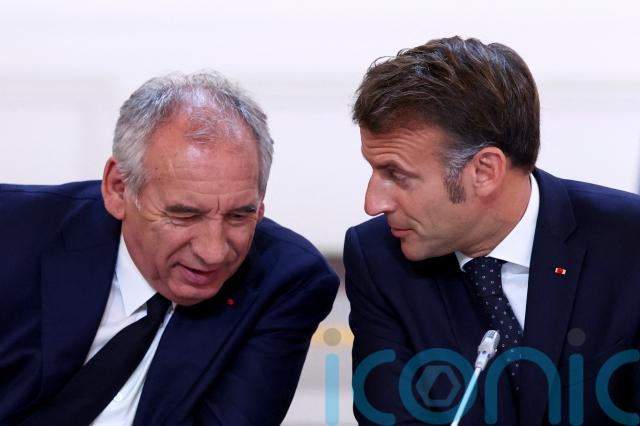
France’s prime minister has announced a confidence vote next month that will likely lead to the collapse of his centrist government and prompt another period of political instability in the European Union’s second-biggest economy.
Francois Bayrou said he would seek approval for his unpopular budget plans on September 8 at the National Assembly, France’s lower house of parliament.
Opposition parties quickly said they would vote against it.
President Emmanuel Macron, who has vowed to stay in office until the end of his term due in 2027, may soon face the complex task of appointing a new prime minister for the third time in a year.
The prime minister focuses mostly on domestic policies, while the president retains substantial powers over foreign policy, European affairs and defence.

Early legislative elections called by Mr Macron in June last year led to a chaotic situation in parliament, divided among three minority blocs that do not have enough seats to govern alone.
Mr Bayrou, 74, has been in office since December.
He unveiled plans last month to cut 44 billion euros (£38 billion) in spending, after France’s deficit hit 5.8% of gross domestic product last year, way above the official EU target of 3%.
The plans includes removing two state holidays.
Mr Bayrou has no option beyond relying on the support — or at least abstention — of adversaries on the left and right to pass the budget bill. That is why he decided to seek a confidence vote ahead of the debate that is scheduled to start in October.
The uncertainty prompted by his decision has alarmed financial markets. The Paris Cac 40 benchmark index fell around 2% after opening on Tuesday.
All opposition parties on the left and the far-right said they would vote against expressing confidence in Mr Bayrou’s government.
Hard-left France Unbowed politicians said they want to “make the government fall”, and the Socialists vowed to reject an “unfair budget”.
The national secretary of the Greens, Marine Tondelier, described Mr Bayrou’s confidence vote as “a resignation de facto”.
The far-right National Rally’s politicians also will vote against it, party leader Marine Le Pen said.
Far-right and left-wing officials hold more than 320 seats at the National Assembly while the centrists and allied conservatives hold 210, making it impossible for Mr Bayrou’s government to survive if opposition groups team up.
If a majority of politicians vote against expressing confidence, Mr Bayrou and his ministers will have to resign.
Mr Macron will be in charge of appointing a new prime minister.
He could pick a figure from the traditional left or right in an effort to consolidate his centrist alliance, but either one would be in a precarious position amid the political deadlock in parliament.
Mr Bayrou succeeded a conservative, Michel Barnier, who was ousted after only three months in office.
Some politicians, including Ms Le Pen, are urging Macron to call a new round of legislative elections in the hope of reshuffling the political cards before the 2027 presidential election.
The French president has not said whether he would be ready to use that option.
Subscribe or register today to discover more from DonegalLive.ie
Buy the e-paper of the Donegal Democrat, Donegal People's Press, Donegal Post and Inish Times here for instant access to Donegal's premier news titles.
Keep up with the latest news from Donegal with our daily newsletter featuring the most important stories of the day delivered to your inbox every evening at 5pm.